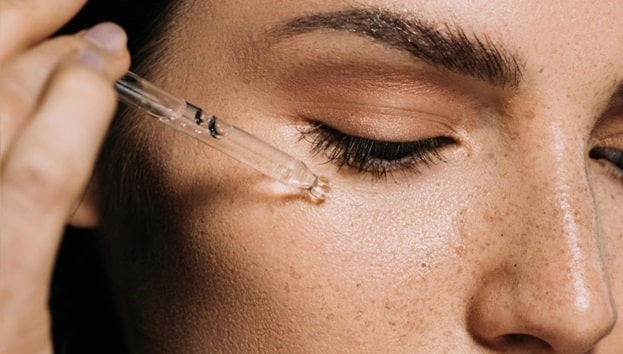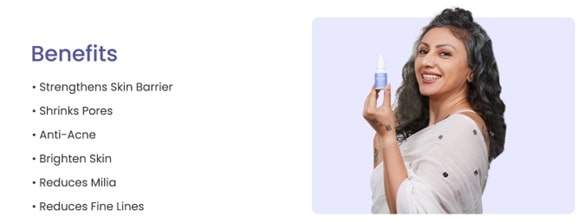Niacinamide joins the ranks of retinol, hyaluronic acid, vitamin C, proteoglycans, and others. In order to flaunt flawless skin, you need get acquainted with this cosmetic element. The skin’s redness is reduced, fat synthesis is regulated, the skin’s barrier function is enhanced, niacinamide is a depigment and antioxidant, and wrinkles are reduced. It works well with a wide variety of skins, which is another huge plus. With the aid of a single pharmaceutical specialist in formulation, we reveal all of the industry’s deepest, darkest secrets.
You may be using a cosmetic product that includes niacinamide and be unaware of it. It’s not a brand-new component; rather, it has certain classic aesthetic hallmarks. They have had it in their goods for quite some time, but recently it has been picking up more and more volume. Niacinamide’s popularity stems from both its high tolerance and its many useful properties (anti-stains, anti-acne, antioxidant, etc.). Niacinamide, unlike retinol and other assets, is generally well-tolerated and beneficial for all skin types. But first, let’s back up a little and discuss the basics.
The 10% Niacinamide serum with ceramides and hyaluronic contains niacinamide, in addition to vitamin C and five other moisturizing, antioxidant, and depigmenting components that work together to heal spots, decrease wrinkles, shield cells from injury, and keep skin supple and hydrated. Great for hiding the signs of aging including fine lines and wrinkles. It has a closed two-year expiry and is natural, vegan, and hypoallergenic, which helps reduce the cumulative impact of cosmetics. So, whether you have oily skin, normal skin, dry skin, or sensitive skin, you can always look your best.
What is Niacinamide?
Niacinamide, also called vitamin B3 or nicotinamide, may be absorbed by the corneal layer (the outermost layer of skin) due to its stability, low molecular weight, water solubility, and alcohol solubility. Buy Niacinamide serum has an important role in the skin since it is a precursor to many cofactors that are involved in several enzymatic skin reactions.
What is it for?
Niacinamide has several positive effects on the skin:
- Seborrheic dermatitis is reduced thanks to its anti-inflammatory and seborrheic characteristics. Facilitates smoother skin and reduced pore visibility. In addition to reducing redness, it also lessens pigmented acne scars, often known as post-inflammatory hyperpigmentation.
- Reduces transepidermal water loss and increases epidermal lipid (ceramide) and protein (keratin, filaggrin) synthesis, all of which contribute to the skin’s protective barrier function. Therefore, it is also appropriate for dry and dehydrated skin.
- Calms the skin and makes it less red. Niacinamide is safe for use even on the most delicate skin types.
- Reduces the look of wrinkles after 8-12 weeks of use by stimulating the body to produce more collagen and elastin.
- Does not allow melanin to be transferred from melanocytes to keratinocytes, hence reducing pigmentation. As a result, you may also use it to get rid of stains.
- As a protein with anti-glication properties, it helps keep skin from becoming yellow and brightens the overall complexion.
- Is anti-inflammatory by reducing inflammation; vital for skin that endures everyday assaults from environmental toxins, UV rays, cigarette smoke, etc.



